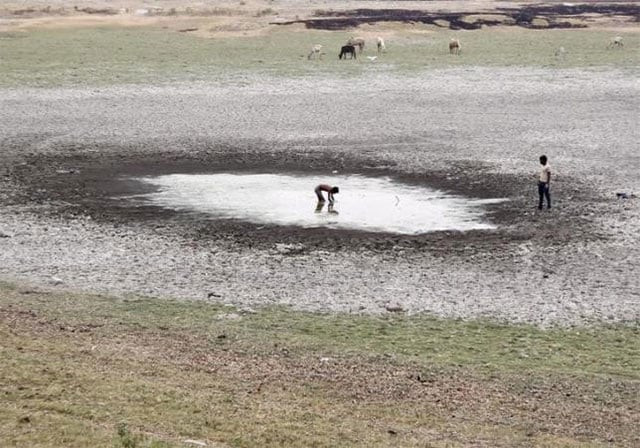Climate change will fuel diseases, warns Global Fund
The fund had witnessed the 'escalating impact' of climate change on health, says executive director Peter Sands

Climate change will end up killing people by fuelling infectious diseases, the head of the Global Fund to Fight AIDS, Tuberculosis and Malaria said on Tuesday.
Executive director Peter Sands said that in 2022, the fund had witnessed the "escalating impact" of climate change on health.
While upsurges in malaria had hitherto been seen due to the increasing frequency and devastation of tropical storms, "with the flooding in Pakistan it was taken to a completely different scale", he said.
"What we are seeing is that the mechanism by which climate change will end up killing people is through its impact on infectious disease."
Sands said that parts of Africa which previously were unaffected by malaria are now becoming at risk as temperatures rise and allow mosquitos to thrive, notably at higher altitudes.
However, the population in such areas will not have immunity, with the resulting risk of a higher mortality rate.
"It's quite alarming," Sands told a briefing with the UN correspondents' association.
Also read: Marriyum hails ‘Loss and Damage’ fund
Other threats include tuberculosis spreading among the increasing number of displaced people around the world.
"TB is a disease that thrives on having concentrations of highly-stressed people in close confines with inadequate food and shelter," he said.
"The more that we see climate change-driven displacement of people, the more I think that will translate into the conditions that will at least make it more likely."
Sands also said food insecurity would make people more vulnerable to disease.
As for whether the world was better prepared for the next pandemic than it was for Covid-19, Sands said it was, but added: "That doesn't mean we are well prepared: we're just not as badly prepared as we were before."
By the end of 2022, Sands said the Global Fund will have invested around $5.4 billion, which is significantly more than it has ever done before.
Also read: More than 20 hurt after magnitude-6.1 quake in Turkey
The Geneva-based organisation's largest donors are G7 governments, led by the United States and France.
"For the people, we serve in the poorest, most marginalised, most vulnerable communities in the world, 2022 was a brutal year," Sands added.
"In the poorest communities in the world, HIV, TB and malaria are killing many more people than Covid-19."



















COMMENTS
Comments are moderated and generally will be posted if they are on-topic and not abusive.
For more information, please see our Comments FAQ